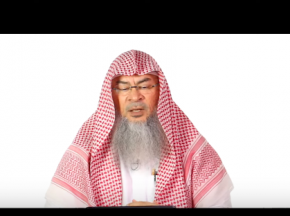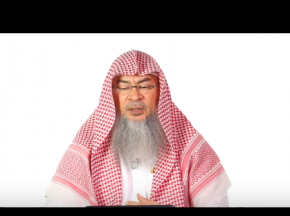content of level
What are the things to recite in tashahhud?
What are the things to recite in tashahhud? - Assim al hakeem.
Earlier you come to masjid, more the reward, How early should we go for Friday prayer?
Earlier you come to masjid, more the reward, How early should we go for Friday prayer? Assimalhakeem.
How do we know if Allah has accepted our dua?
How do we know if Allah has accepted our dua? - Assim al hakeem.
Does a barrier like paint on hands, nail polish, dough, wax etc make wudu invalid?
Does a barrier like paint on hands, nail polish, dough, wax etc make wudu invalid? - Assim al hakeem.
I didn't pray in my non practicing days Should I offer qadha or what's the right way
I didn't pray in my non practicing days Should I offer qadha or what's the right way Assim al hakeem.
Wasting water in wudu and ghusl
Wasting water in wudu and ghusl - Assim al hakeem.
Reward for women praying at home better than at masjid, even in Makkah haram
Reward for women praying at home better than at masjid, even in Makkah haram - Assim al hakeem.
Can a Muslim Man marry a Christian or a Jewish Woman?
Can a Muslim Man marry a Christian or a Jewish Woman? - Assim al hakeem.
Can we pray the voluntary prayers aloud?
Can we pray the voluntary prayers aloud? - Assim al hakeem.
Can we display clothes on female mannequins? & Prohibition on statues
Can we display clothes on female mannequins? & Prohibition on statues - Assim al hakeem.
Can duas from the Quran be recited in other parts of the prayer?
Can duas from the Quran be recited in other parts of the prayer? - Assim al hakeem.
Does touching one's private parts during prayers invalidate the prayer?
Does touching one's private parts during prayers invalidate the prayer? - Assim al hakeem.
Does makeup and cream invalidate your wudu?
Does makeup and cream invalidate your wudu? - Assim al hakeem.
Ruling on a man who skips 3 continuous Friday Prayers
Ruling on a man who skips 3 continuous Friday Prayers.
Iddah of a woman who has irregular period / menses
Iddah of a woman who has irregular period/menses - Assim al hakeem.
Can I walk in prayer, go left, right or go front or back when an empty space opens up
Can I walk in prayer, go left, right or go front or back when an empty space opens up .
Can I cover my head with a hoodie during prayer?
Can I cover my head with a hoodie during prayer?
Feeling of dripping Urine while praying
Feeling of dripping Urine while praying
Is it Mandatory to pray in the masjid?
Is it Mandatory to pray in the masjid? - Assim al hakeem.
If an Imam has done Tayammum can he lead the prayer?
If an Imam has done Tayammum can he lead the prayer? - Assim al hakeem.



















